
STEPPING THROUGH THE curtains and into Stuart Vevers’s show space, it felt, quite viscerally, like a new day was dawning. In his five years at American fashion house Coach, the British designer has had a track record for favouring dark, dramatic venues for his shows. Remember, this was the man who transported the fashion set to anywhere from a forest at dusk to a glitter-dusted New York street, so to walk into a large, open space filled with light and two large sculptures was quite a shock to the system. The massive metal kinetic sculptures, which he designed himself, set the stage and perhaps provided some structure to a collection with psychedelia on its mind.
Perhaps it was pure coincidence but wood, like the material of the runway on which the models trotted, is also the gift for a fifth wedding anniversary. In his time at the house, Vevers has proven, time and again, the adage that if it ain’t broke don’t fix it. The prairie dresses he first championed at the start of his tenure at Coach now reverberate through the fashion world. As have those handsome, chubby shearling jackets that’ve garnered traction around the globe’s hippest intersections, the fact that they’re Coach is but the cherry on top. This season, while he may not have delivered on the promise of a new day dawning, the ’90s, grunge-y riff he put on his clothes more than made up for it. From the exit of the first model, the want factor was strong. A logo-emblazoned shearling vest (Coach has joined the ranks and gone fur-free) over a sweater, woolen bike shorts and heeled creepers felt like the perfect summation of the push-pull tension he’s given the house. Mainstays like the aforementioned dresses and outerwear have given the brand fashion cred independent from its beginnings in leather goods.
This story is from the September 2019 edition of T Singapore: The New York Times Style Magazine.
Start your 7-day Magzter GOLD free trial to access thousands of curated premium stories, and 9,000+ magazines and newspapers.
Already a subscriber ? Sign In
This story is from the September 2019 edition of T Singapore: The New York Times Style Magazine.
Start your 7-day Magzter GOLD free trial to access thousands of curated premium stories, and 9,000+ magazines and newspapers.
Already a subscriber? Sign In
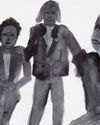
Look At Us
As public memorials face a public reckoning, there’s still too little thought paid to how women are represented — as bodies and as selves.
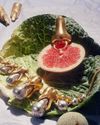
Two New Jewellery Collections Find Their Inspiration In The Human Anatomy
Two new jewellery collections find their inspiration in the human anatomy.
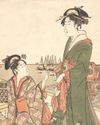
She For She
We speak to three women in Singapore who are trying to improve the lives of women — and all other gender identities — through their work.
Over The Rainbow
How the bright colours and lively prints created by illustrator Donald Robertson brought the latest Weekend Max Mara Flutterflies capsule collection to life.

What Is Love?
The artist Hank Willis Thomas discusses his partnership with the Japanese fashion label Sacai and the idea of fashion in the context of the art world.

The Luxury Hotel For New Mums
Singapore’s first luxury confinement facility, Kai Suites, aims to provide much more than plush beds and 24-hour infant care: It wants to help mothers with their mental and emotional wellbeing as well.
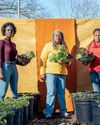
Who Gets To Eat?
As recent food movements have focused on buying local or organic, a deeper and different conversation is happening among America’s food activists: one that demands not just better meals for everyone but a dismantling of the structures that have failed to nourish us all along.
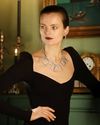
Reimagining The Future Of Fashion
What do women want from their clothes and accessories, and does luxury still have a place in this post-pandemic era? The iconic designer Alber Elbaz thinks he has the answers with his new label, AZ Factory.

A Holiday At Home
Once seen as the less exciting alternative to an exotic destination holiday, the staycation takes on new importance.
All Dressed Up, Nowhere To Go
Chinese supermodel He Sui talks about the unseen pressures of being an international star, being a trailblazer for East Asian models in the fashion world, and why, at the end of the day, she is content with being known as just a regular girl from Wenzhou.